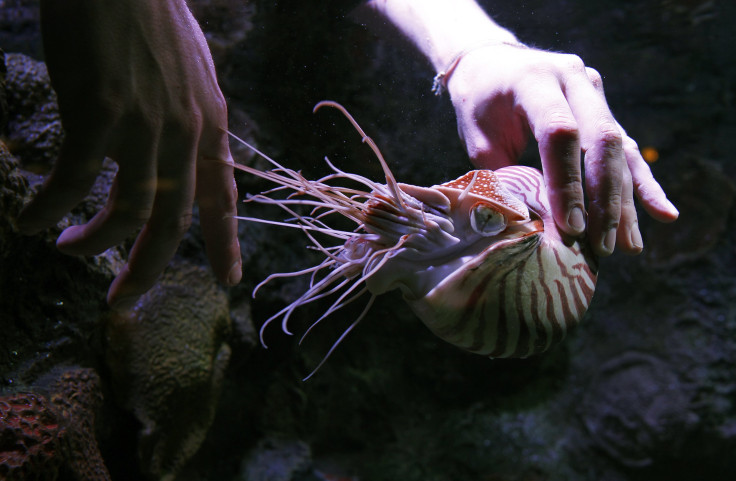No More Ripped Jeans: Squid Tooth Protein Could Lead to Self-Repairing Clothes

The future of mending clothes may require one less tailor and one extra squid. In a new development, researchers at Pennsylvania State University have discovered healing properties in the proteins from squid ring teeth that can self-repair some fabrics. According to the team, this technology can be applied to create chemically protective suits that protect farmers from pesticide exposure, factory workers from toxic ingredients and soldiers from chemical and biological attacks.
"Fashion designers use natural fibers made of proteins like wool or silk that are expensive and they are not self-healing," said Melik C. Demirel, professor of engineering science and mechanics at Penn State, in a statement. "We were looking for a way to make fabrics self-healing using conventional textiles. So we came up with this coating technology."
The researchers, who published their report online in ACS Applied Materials & Interfaces, found that adding certain enzymes to fabric coating can be beneficial. Specifically, the enzyme organophosphate hydrolase, which is a squid ring teeth polymer, has the ability to break down toxic material and boasts self-healing properties. In the presence of water, the polymer repairs “micro and macro defects in the coating” to increase the wearability and reusability of garments.
Instead of sacrificing innocent cephalopods, the scientists have created a lab-made liquid, which is unnamed, from bacteria and yeast solution.
"Squid is a limited resource,” said Demirel to CNN Money. “So we needed to replicate this unique property found in squid protein using biotechnology and other substances.”
Dipping garments in a series of liquids allows the researchers “to create layers of material to form a self-healing, polyelectrolyte layer-by-layer coating.” And when the coated garment comes in contact with water, the proteins link pieces of fabric to the coating to mend and repair the material.

"We currently dip the whole garment to create the advanced material," said Demirel. "But we could do the threads first, before manufacturing if we wanted to."
Demirel has tested the solution on an array of fabrics—cotton, wool, and polyester—to find the quality of the fabric does not change and the mend is not impacted by one wash in the laundry machine.
Previously, the Penn State scientists found squid ring teeth polymer to have healing properties that can repair plastic. As for what’s next, Demirel hopes to explore the potential of self-repair in washing machines.
"Science happens in small steps," said Demirel to CNN Money. "The next step would be to see if clothes can self-repair when we pour the liquid into a washing machine, like you would a detergent, and apply water and heat."
© Copyright IBTimes 2024. All rights reserved.






















